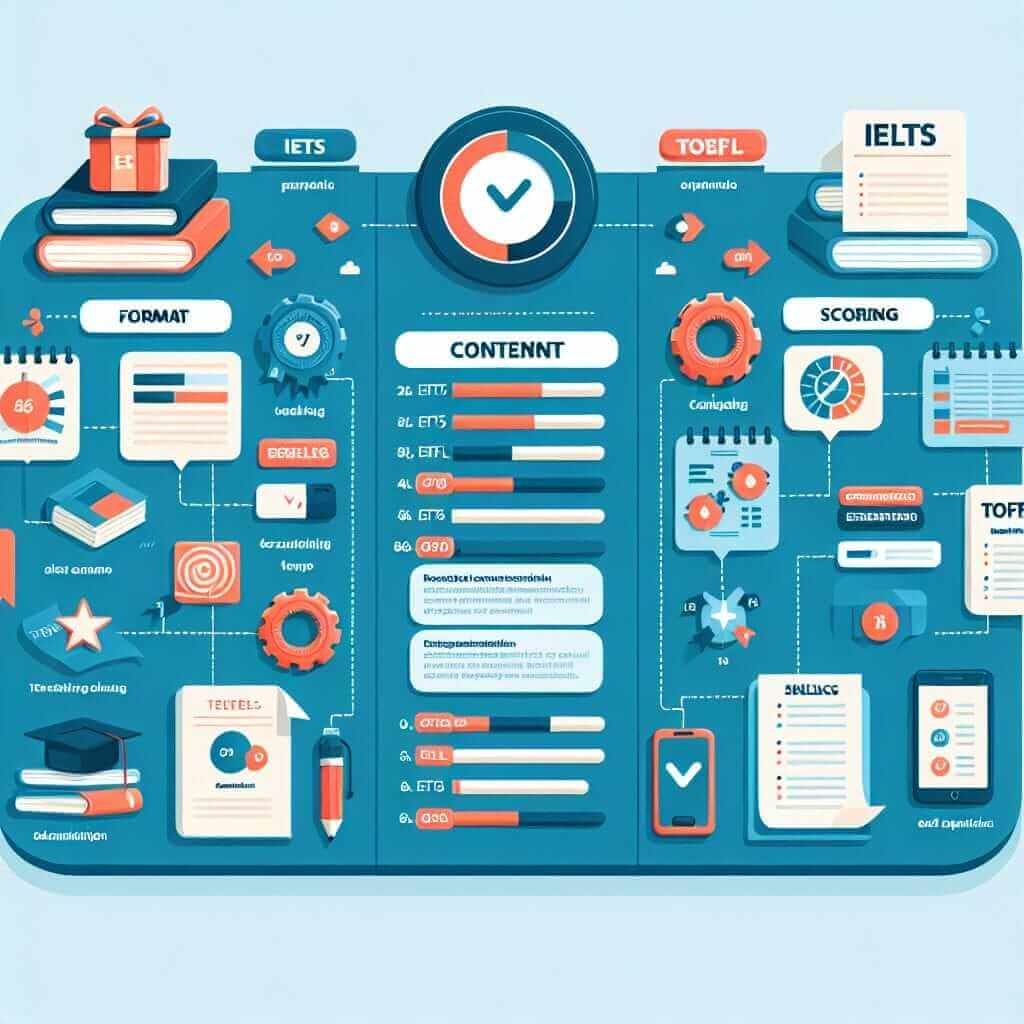As an IELTS instructor with over two decades of experience, I often encounter students who wonder about the similarities and differences between the IELTS and TOEFL exams, particularly the essay sections. While both tests assess your English language proficiency, understanding the nuances of their essay components is crucial for success. This article delves into the intricacies of both writing tasks, highlighting their commonalities and distinctions to help you prepare effectively.
Understanding the Core Differences
Although both exams evaluate your ability to articulate thoughts in written English, they differ significantly in format, focus, and scoring criteria.
IELTS Essay Types
The IELTS writing test features two tasks:
- Task 1 (20 minutes): This task requires you to analyze and summarize visual data presented in the form of a graph, chart, table, or diagram. You need to write at least 150 words, focusing on conveying the key information clearly and accurately.
- Task 2 (40 minutes): This task involves writing an essay in response to a given prompt or argument. You’ll need to express your opinions, provide evidence, and develop a well-structured argument in at least 250 words.
TOEFL Essay Types
The TOEFL writing section also consists of two tasks:
- Integrated Writing Task (20 minutes): This task involves reading a short passage and listening to a lecture on the same topic. You then summarize the key points of both the reading and listening materials in an essay of 150-225 words.
- Independent Writing Task (30 minutes): This task presents you with an essay prompt requiring you to express your personal opinion or experience on a given topic. You need to write at least 300 words, developing your ideas with relevant examples and supporting details.
Key Distinctions: IELTS vs. TOEFL Essays
While both exams assess your writing skills, several critical differences exist:
-
Format and Content: The most significant difference lies in the format of Task 1. IELTS emphasizes interpreting visual data, while TOEFL focuses on integrating information from reading and listening.
-
Essay Length: The word count requirements vary. IELTS Task 2 requires a minimum of 250 words, while the TOEFL Independent Task requires at least 300 words.
-
Writing Style: IELTS often leans towards a more academic writing style, particularly in Task 1, while TOEFL allows for a slightly more personal and reflective tone in the Independent Task.
-
Scoring Rubric: Both exams have specific scoring criteria, but they differ in their emphasis. IELTS prioritizes coherence and cohesion, lexical resource (vocabulary), grammatical range and accuracy, and task achievement. TOEFL focuses on development, organization, and language use.

Tips for Success
- Understand the Requirements: Familiarize yourself with the specific requirements of each exam, including format, timing, and scoring criteria.
- Practice Regularly: The key to excelling in both exams is consistent practice. Write essays on various topics using past papers or sample prompts.
- Develop Your Vocabulary: Enhance your vocabulary range to articulate your ideas clearly and effectively.
- Focus on Structure and Coherence: Ensure your essays are well-organized with a clear introduction, body paragraphs, and conclusion. Use transition words and phrases to create logical flow and coherence.
- Proofread Carefully: Allow time for thorough proofreading to eliminate grammatical errors and improve clarity.
Conclusion
While the essays in IELTS and TOEFL share some similarities, understanding their unique features is vital for achieving your desired scores. By recognizing the distinctions in format, content, and scoring, and by implementing the suggested tips, you can confidently approach both exams and showcase your English language proficiency effectively. Remember, consistent effort and targeted practice are key to excelling in these challenging writing tasks.